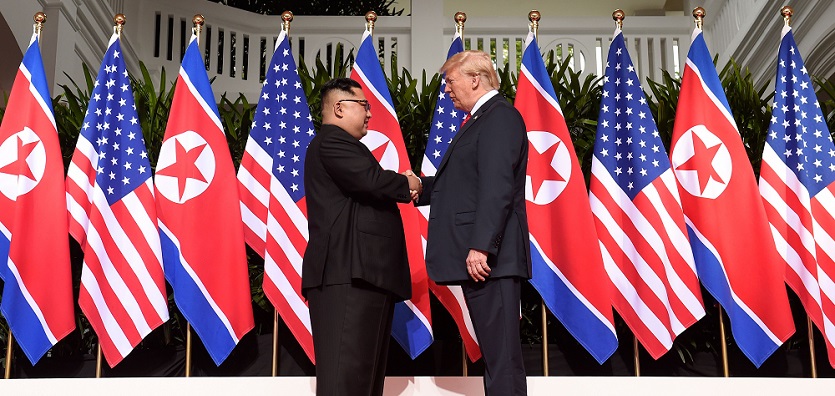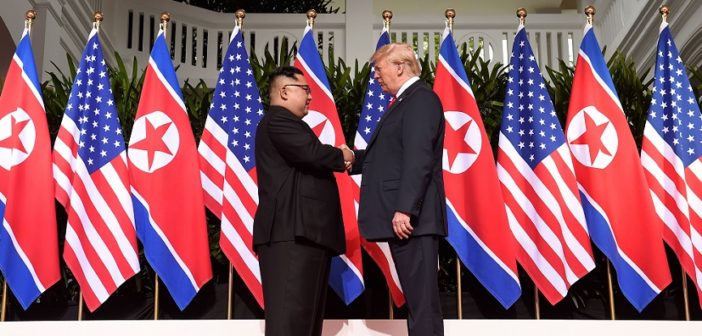
Alison Evans, deputy head of Asia Pacific Country Risk
- The joint statement signed by US President Donald Trump and North Korean Supreme Leader Kim Jong Un had few details or actionable items. By committing to work “towards” the denuclearisation of the Korean Peninsula, Kim has conceded no more than he did in the 27 April Panmunjom Declaration signed with South Korean President Moon Jae-in. Rather, the statement implicitly recognises North Korea as a de facto nuclear weapons state. This lends North Korea, and specifically Kim, legitimacy at home and abroad. In a press briefing Trump said that “sanctions will remain in place.” Notably, however, our analysis indicates that sanctions have not yet had a substantial impact on North Korea’s economy, importantly in the capital Pyongyang.
- For North Korea “denuclearisation” means multilateral rather than unilateral disarmament. Although Trump announced that North Korea was “already destroying” a missile engine testing site, the location and nature of the site – and more importantly its impact on North Korean weapons capabilities – remains unclear. In this way, the statement is similar to the joint statement signed by the US and North Korea on 11 June 1993, which also agreed to the principle of “peace and security in a nuclear-free Korean Peninsula, including impartial application of fullscope safeguards,” but resulted in few substantive concessions by North Korea.
- If, as indicated by Trump in the press briefing, the US and South Korea suspend scheduled joint military exercise, this would be a substantial concession to North Korea’s security concerns. Follow-up negotiations are likely to include discussions of the “security guarantees” that US committed to provide North Korea in the joint statement. The option to meet a North Korean leader was most likely available to previous US presidents, who probably decided not to hold a summit at least in part because these guarantees would be unacceptable to the US and, importantly, its northeast Asian allies South Korea and Japan.






